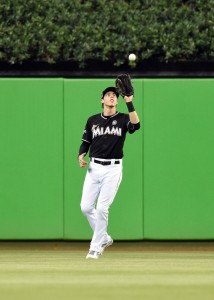Top Marlins prospect Braxton Garrett is undergoing Tommy John surgery today on his left elbow, Clark Spencer of the Miami Herald reports on Twitter. The southpaw recently was diagnosed with a partially torn UCL.
The seventh overall pick in last year’s draft, Garrett entered the year with consensus top-100 billing. He showed well in 15 1/3 innings this year at the Class A level, pitching to a 2.93 ERA with 16 strikeouts against six walks, before being sidelined.
That’s difficult news for a Marlins organization that is in need of future rotation assets and is generally regarded to have one of the game’s worst farm systems. It also marks the second consecutive season in which the club’s consensus top prospect has required Tommy John surgery. A year ago, right-hander Tyler Kolek (the No. 2 overall pick in the 2014 draft), also suffered a torn ulnar collateral ligament and underwent Tommy John surgery. He’s yet to return to the mound in 2017 after missing the entire ’16 campaign.


